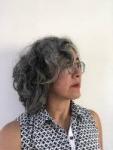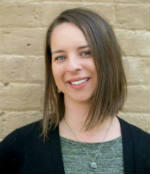It isn’t a good idea to repeatedly ask yourself why you live in an estuary. Upon doing so, upon asking yourself so many times, moreover if you do so before a mirror, it’s very likely that you’ll end up, sooner rather than later, without any answer at all. A gaping mouth. Blank eyes. The sky filled entirely with blue. Why do we live, after all, in any place in particular? It is, without a doubt, the lack of an answer, that particular lack of an answer that occurs when a question has been fruitlessly articulated many times, that provoke phrases like this: “Because in estuaries you can find the coexistence of three types of producers that carry out the process of photosynthesis: macrophytes (algae, seagrasses, and marsh grasses); benthic microphytes (algae and other types of plants connected to the river bed); and phytoplankton (microscopic algae). That’s why I live here, naturally.” And then, opening the little cabin window to look out, once more, upon all this, feels essential. The word is aestuarium. The word that means “under the influence of the tides.”
Look at it. That’s what she has done since coming to live here, in the estuary. Furtively observe it. Look at it without understanding.
I am not a scientist. I didn’t come to the estuary in search of ecological liberation. I wasn’t born around here. I answered, perhaps like others, an ad—written in tiny letters—for an attendant at a small museum on the estuary’s outskirts. To be more precise: on its banks. In the interview, I told them the truth: I didn’t have grand aspirations. But I didn’t tell them the whole truth: I wanted to read. I wanted to have all that time to read. I thought this kind of job, of minimal responsibility and low expectations, would give me the necessary time to read a series of books I had put on an ever-increasing list some years ago. When I signed the contract, I was filled with delight to know that the meager salary and the absolute lack of expectations was supplemented with a place to live. I didn’t think about anything the first time I entered the wooden cabin with the window where I continue to observe the low tides under whose influence I still live. Pleasure tends to be like that.
Rocky coasts. Oyster reefs. Mangrove forests. River deltas. Beds of marine algae. Wooded marshes. I’ve seen all those images from so many other estuaries because they hang from the walls of the museum I care for. I’ve looked at them for innumerable hours, for entire days. Dust-covered paintings. Black and white photographs. Stuffed and already fading birds. I’ve spent so much time looking at them that, with the passage of time, I can tell which of the frames will acquire a readjustment just by walking into the space. I’ve dedicated much of my energy and observational abilities to this: to looking at the frames from afar, to approaching them to straighten them, to backing up again to see if the touch on the right or left side had been enough, to approaching them once again to make adjustments. Carrying out this simple operation, this almost mechanical operation, has consumed many of my hours working at the museum. And because of that—because straightening frames and inspecting all of their details is what I do every day—when the first message appeared inscribed within one of the paintings, I couldn’t believe it. Ko’lew nñimát. That’s what it said. I didn’t know anyone who could say that. I hadn’t seen anyone in the museum writing it.
Do you live in an estuary to find yourself permanently stuck within the words ‘mouth of the river’? Perhaps. It’s more likely that you could live anywhere and go crazy or because you went crazy. I figured it was that and not something else that obliged me to see tiny messages within the images of the estuary that later, when I tried to erase them, had already disappeared. Do you live in an estuary to read or to make up that you read tiny messages in unknown languages? When I finally decided to investigate what those messages meant, I learned that they belonged to an almost-dead language. My land, that’s what it meant. Kiliwa, my land. Something like that, anyways. It’s enough to say that I don’t come from there.
I searched for the o, for the responsible party of such mischief, of course. I pretended to read, but in reality, I spied. I trained my eyes in the ancient art of furtive observation. Without moving my head or gaze, without moving from the chair that tied me to the corner of the room, I did nothing but wait for the moment of apparition. And is that why, I asked myself at dusk, I live in an estuary? I studied them, yes. I studied them all the time. I studied the phrases: their apparition and, later, their disappearance.
My search for the criminal distracted me from my habitual reading and, little by little, I abandoned my list of books to read. I already knew how to be quiet but, gradually, I learned how to remain even quieter. You stop speaking without really realizing it. Later, also with the passage of hours and days, you stop eating. And, while your state of alert grows, your question doesn’t go away: Why did I come to the estuary? What am I really doing here? Faced with each of the question marks, my reaction remains the same: I stand up to straighten one of the frames. Then I back up. I approach it again.
Spí uñieey mat.
The phrase appeared a long time ago. It was, in fact, one of the first to appear. When it did, when it appeared, it did so within a black and white photograph that fell, months later, to the floor due to the tremors of an earthquake. A tiny phrase at the bottom of a wooded marsh, that’s what it was. Almost immediately I understood its meaning: I don’t want to die. I still study it out of the corner of my eye. I still ask myself who left that message here. I still don’t understand it.
From Dimunitus, copyright ©2017
Translated by Sarah Booker
We thank Cristina Rivera Garza for authorizing the publication of “Spí Uñieey Mat” in LALT.



